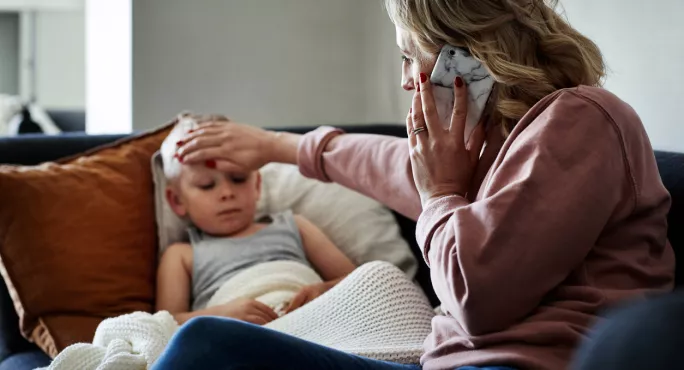The Department for Education has told headteachers to contact their local health protection team if there is an outbreak of two or more linked cases of scarlet fever within 10 days.
It follows increased reports of outbreaks of scarlet fever, which is caused by strep A bacteria, in schools across the UK.
Guidance sent to headteachers this week has detailed that “early years settings and schools should contact their UK Health Security Agency’s health protection team if there is an outbreak of two or more scarlet fever cases within 10 days of each other and the affected individuals have a link, such as being in the same class or year group”.
However, the DfE has said that there is no reason for children to be kept at home if they are well, even if there are confirmed or suspected cases in an education or childcare setting.
Yesterday, it was revealed that a scarlet fever outbreak at a rural primary school in Wales had resulted in two children being admitted to hospital.
A total of 24 children at the Brynaman Primary School in Carmarthenshire have so far been diagnosed with the illness.
It has been reported that 10 children have died in recent weeks after contracting the bacterial infection.
Symptoms of strep A infection include a sore throat, headache, fever and a fine pinkish or red body rash with a sandpaper-like feel.
The DfE has said that on darker skin, the rash can be more difficult to detect visually but will still have the sandpaper-like feel.
Headteachers have been advised to tell parents to contact their GP practice or contact NHS 111 if a child develops these symptoms.
And the DfE has told schools that if a child has scarlet fever, they should advise that the child stays at home until at least 24 hours after the start of antibiotic treatment to avoid spreading the infection to others.
Earlier this week, schools minister Nick Gibb said the UKHSA was “working closely with the schools involved and giving very specific advice” to them.
He said this advice “may involve the use of penicillin”.
The deputy director of the UKHSA has also said that local health protection teams can give antibiotics to groups of children when there has been a strep A outbreak.
Despite concerns being raised, the health secretary said yesterday that there is no shortage of antibiotics as he urged parents to remain vigilant for signs of strep A.
Yesterday, education secretary Gillian Keegan told MPs that while the UKHSA was leading on the response, the DfE was monitoring the “worrying” situation.
Ms Keegan added it was important for all parents to be “vigilant”.
The DfE will be sending out UKHSA advice to schools through daily bulletins. The UKHSA has also advised good hand and respiratory hygiene practices in order to help prevent the spread of infection.
For more information, visit the UKHSA website or the DfE’s Education Hub.




